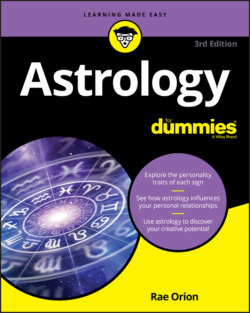Читать книгу Astrology For Dummies - Rae Orion - Страница 46
Savoring the Romans
ОглавлениеIn the Roman Empire, astrology and divination were the cat’s meow. Romans paid attention to portents, and there were portents aplenty: comets, dreams, lightning, snakes, lamps that abruptly flickered out (a good omen, or so thought Tiberius), laughing statues, decapitated statues, trees growing in unexpected directions, and birds — ravens, eagles, vultures, doves, wrens, and sacred chickens — behaving badly. Not everyone supported astrology. Cicero, for one, questioned it. But emperors consulted astrologers, and they did so on a regular basis.
In 44 BCE, Shakespeare tells us, Julius Caesar foolishly ignored a soothsayer’s advice to “Beware the Ides of March.” That seer, according to Cicero, was Vestritius Spurinna, who could read the future in the stars and in the entrails of sacrificed animals.
Caesar’s successor was his adopted son Augustus, who in his youth visited the astrologer Theogenes with his friend Agrippa. Theogenes prophesized such wondrous good fortune for Agrippa that Augustus was certain that he would suffer in comparison. But after Theogenes cast his chart, he threw himself at Augustus’s feet. Augustus was so heartened that he had his horoscope published and issued coins emblazoned with the symbol of Capricorn, thereby sending historians into a tizzy that has lasted over 2000 years. (See sidebar.)
